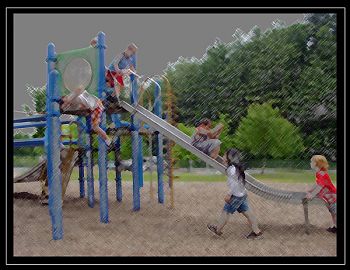 Seven months’ work with seven autistic children came to an end last Friday, the last day of school. “I feel I’m a better person for the experience,” I said to a colleague. So many daily lessons – as Elie Wiesel often says of his students, I learned far more than I taught.
Seven months’ work with seven autistic children came to an end last Friday, the last day of school. “I feel I’m a better person for the experience,” I said to a colleague. So many daily lessons – as Elie Wiesel often says of his students, I learned far more than I taught.
I learned how to separate the behavior from the child. The child and the behavior – and I’m talking of crises: spitting, hitting, screaming, kicking, crawling under a table, self-destructive behavior, etc. – are not equivalent. Indeed, it is very seldom the child actually behaving that way, but rather the condition taking over and running things for a few moments, or minutes. You can see it in the eyes, and hear it in the voice.
I learned that there are far more difficult things to deal with as a teacher than a belligerent teenager. Countless times during the last seven months I was at a complete loss as to what to do, what to say, how to behave. This was partially a function of my lack of education in the EC field. When a child is in crisis, it’s a natural reaction to try to discuss it, to try to “talk him down.” In the world of autism, that seldom works. I learned to do so many things in exact opposition to my every instinct.
I learned what true student progress can entail. A couple of the students finished the year as completely different children than when they started. Gains in reading ability, social interaction, verbal expression, math skills, and general life skills left me simply astounded, and understandably proud that I had something to do with it.
I learned that even many regular education teachers feel they wouldn’t be able to work with such “difficult” children. “You guys are the saints of the school,” someone once told me, and a couple of others expressed an inexplicable admiration of “what we do.” What we did was not very different from regular education: try to teach children and minimize the behavior issues that impede learning. It’s just in special ed, the behaviors can be more concentrated. It’s sometimes a triple espresso to regular education’s thin, pale diner coffee.
As something of a correlate of the previous two points, I learned how to recognize true appreciation in the eyes and voice of parents. When I began working there as a substitute teacher, I was told that most subs last one day and refuse ever to come back. Full-time aides must be relatively difficult to find as well. Almost to a parent, everyone told me, “We really hope you’ll be back next year, though given the pay, we’d all understand if you didn’t.”
Finally, I learned that I have a patience I never knew I had, and it also has its bounds.
I leave with a greater understanding of autism, a greater respect for the parents of autistic children who live with autism every day.
Most of all, I leave with greater sympathy and respect for children with autism. They are the ones caught in a trap with varying degrees of understanding what that trap _is_, let alone how to get out. And yet they so often show those of us working with them things we never would have noticed because of the unique perspective from which they see every little thing.
Gary, I am so glad you were able to work with these beautiful children. While running my daycare, I cared for three autistic children. My life, too will never be the same. Not only do they teach you about unconditional love, but patience. It’s as though you can see the world in a new way – much simpler, I often think. Hope all is well. (I also enjoyed your story about your communion experience. We’ll have to talk about the difference in Catholic and Lutheran theology sometime) Di
It was certainly an adventure, and I think you’re absolutely right about seeing the world from a different perspective, while and after working with them. Much simpler, and much more literal.